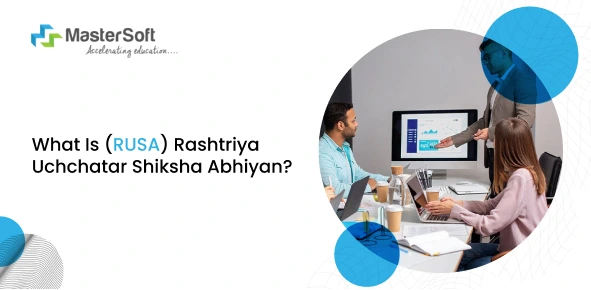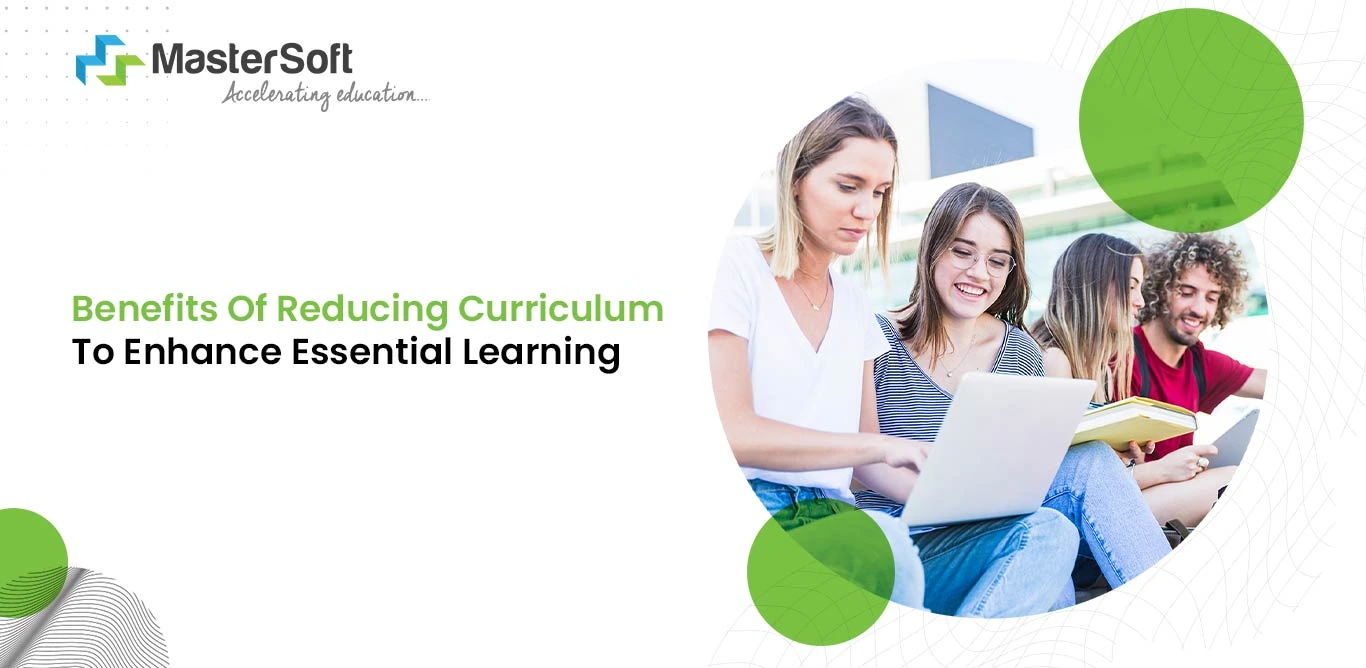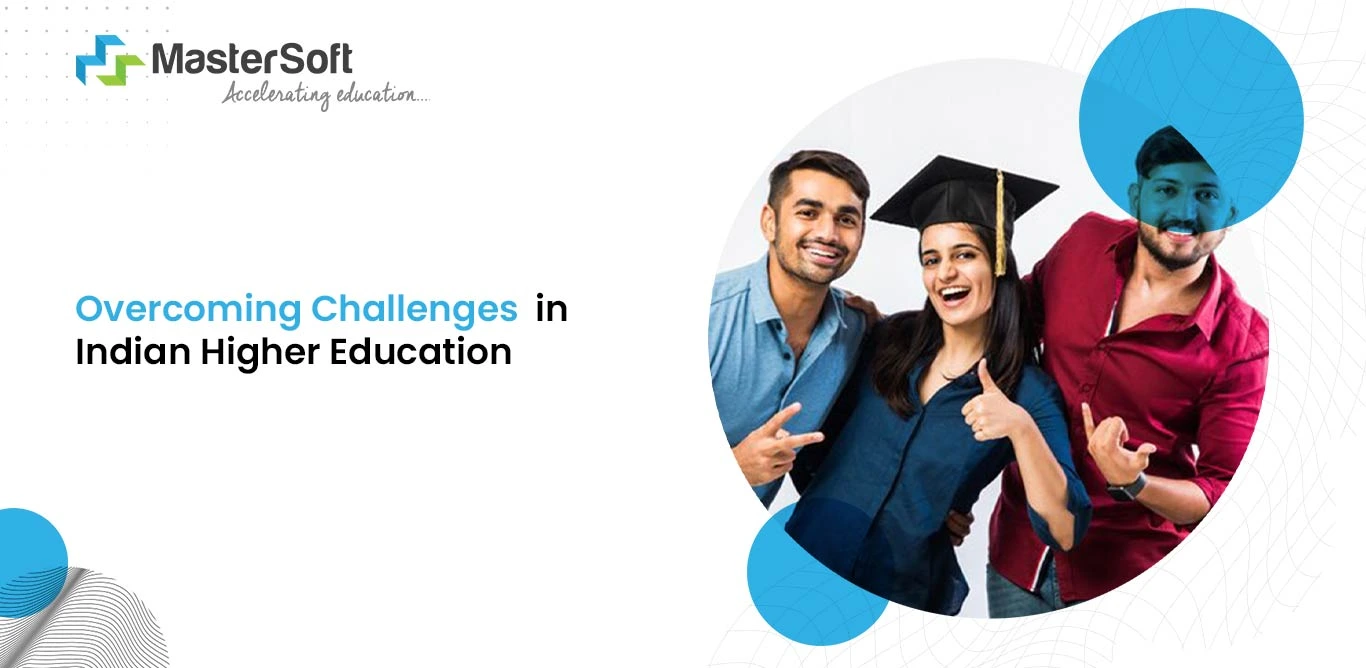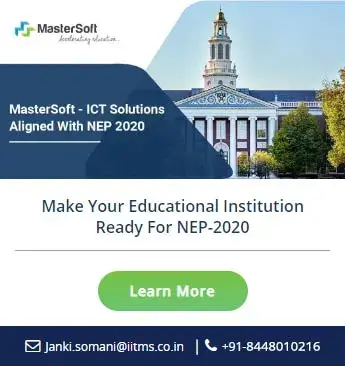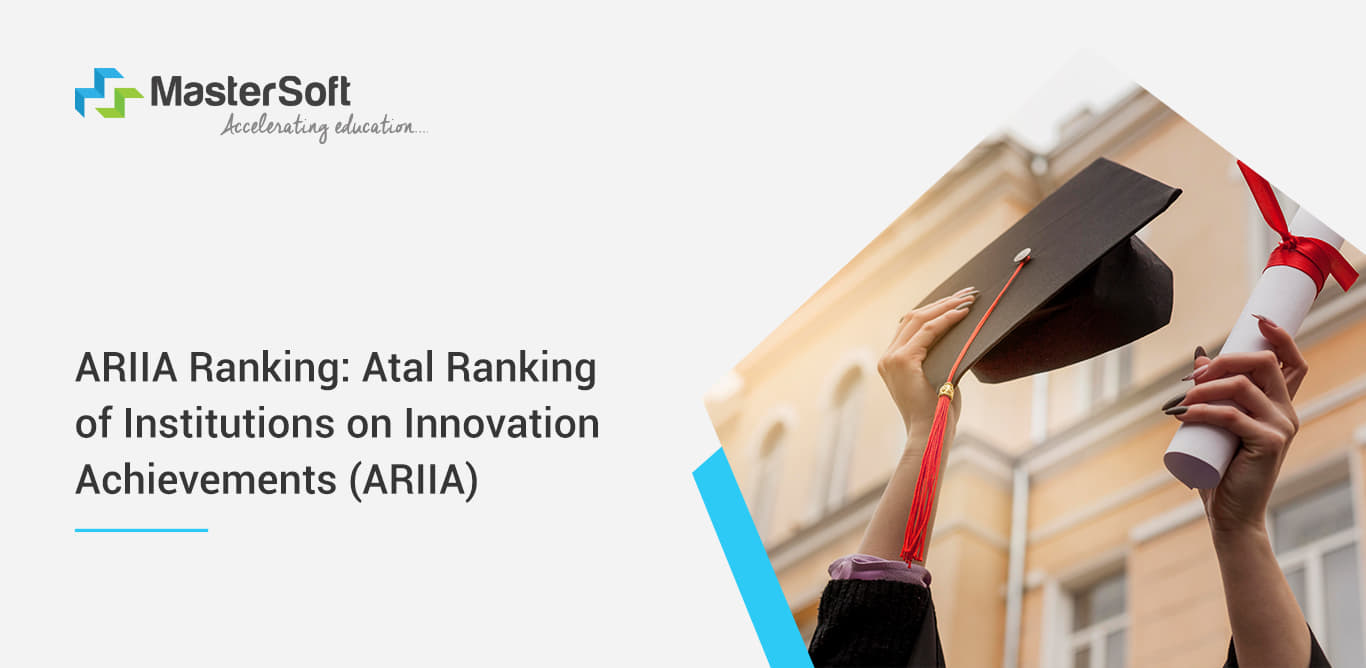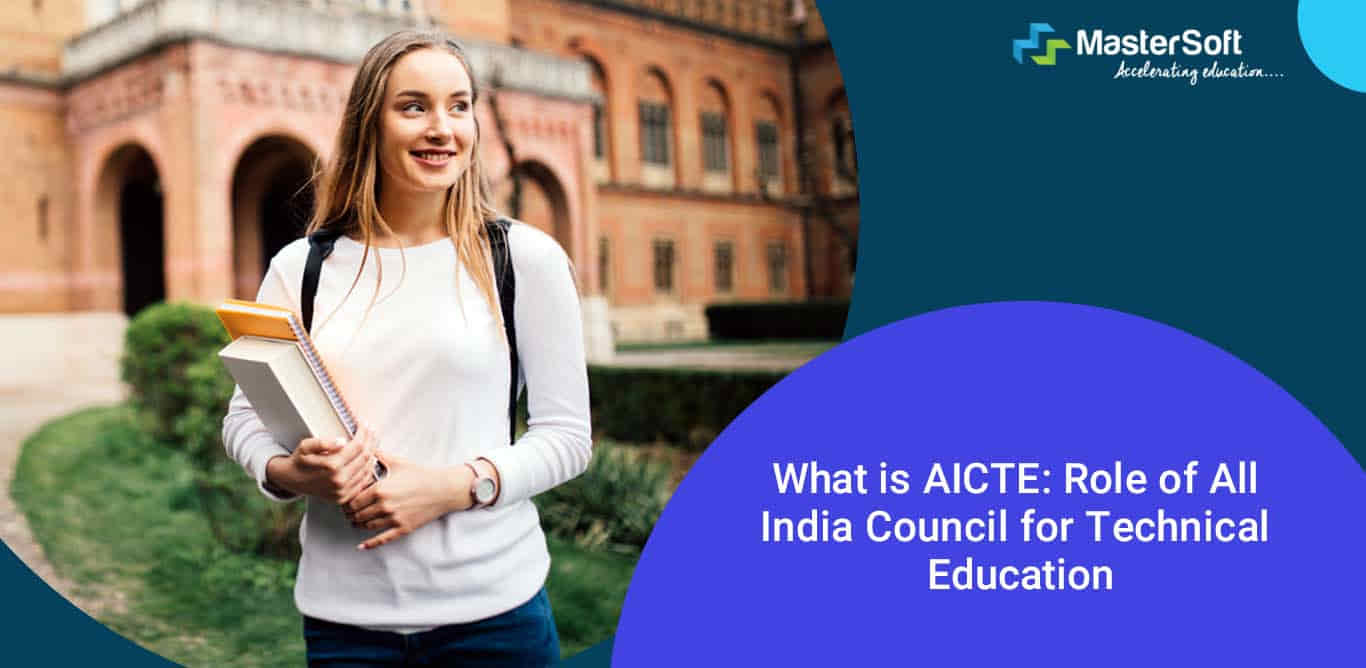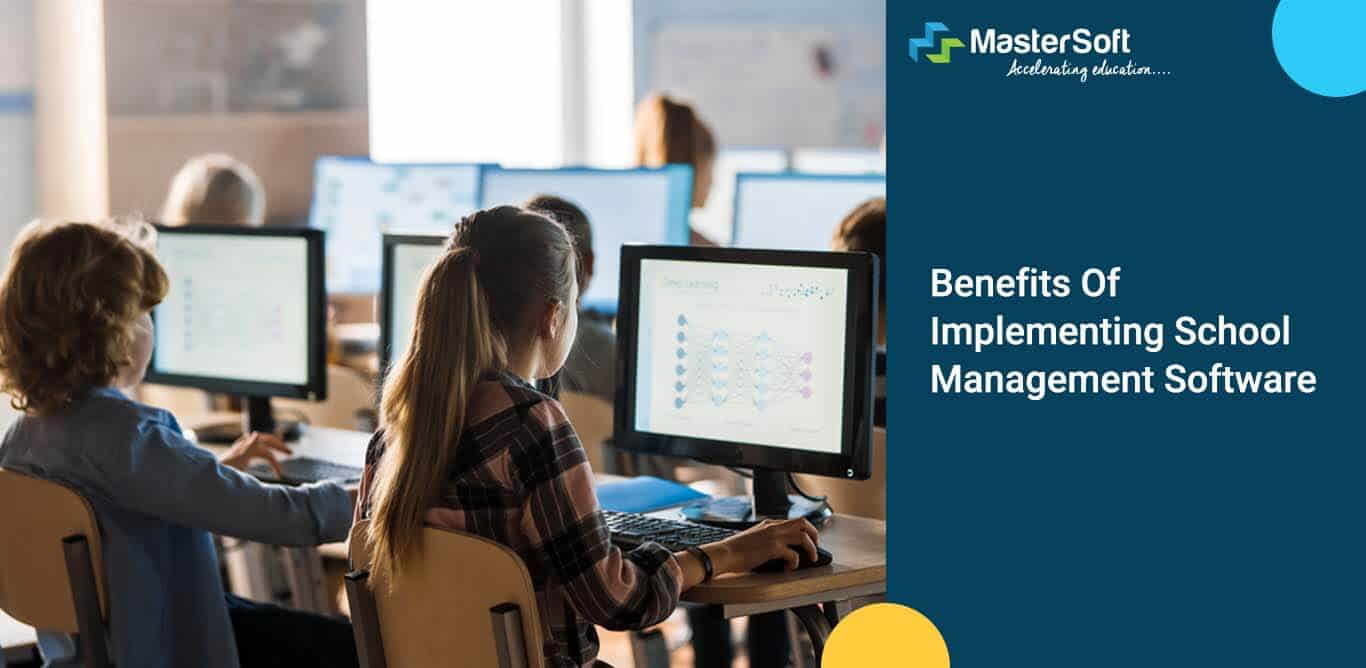06, Nov 2024
The Rashtriya Ucchatar Shiksha Abhiyan (RUSA) is a central government initiative specifically designed to strengthen the country's network of higher educational institutes. It provides a structure for central funding in terms of a 60:40 ratio for general category states, a 90:10 ratio for special category states, and 100 percent for union territories.
However, funding depends on the norms and outcomes, and the central ministry channels funds through state governments/UTs to state higher education councils, who then disburse them to educational institutions. Hence, it is only fitting for the institutes to understand the objectives of RUSA.
Objectives of RUSA
The Department of Higher Education (Ministry of Education) of the Government of India launched the initiative in 2013 to bolster the country’s education system. It has been approved to continue until March 2026 or until further review. One of the crucial ways is by improving institutional operations by emphasizing the following objectives:
- Improve the overall performance of each state institute by mandating accreditation as a quality assurance mechanism and ensuring adherence to established principles and regulations.
- Develop a supportive administrative framework at the state level to foster autonomy in the state universities and streamline day-to-day administration, helping to facilitate necessary changes in state higher education.
- Ensure adequate and appropriate changes in the academic, affiliation, and examination systems.
- Ensure that institutes have competent and qualified faculty and staff in all higher educational institutes.
- Create a conducive environment for higher educational institutes to integrate and adapt technology.
- Expand the institutional base by enhancing the capacity and establishing new branches to meet the enrolment targets.
- Promote equality in higher education by providing adequate opportunities for SC/STs and other socially and educationally disadvantaged groups (women, minorities, and differently-abled persons).
- Address regional imbalances in higher education accessibility by establishing institutions in underserved and unserved areas of the country.
What are the eligibility criteria for RUSA funding?
The eligibility criteria for RUSA funding are as follows:
- Colleges of any discipline recognised under UGC Section 2(f) are eligible for funding.
- Institutes must attain either a Grade A of NAAC accreditation or a good NBA score, quality education indicators.
- The institute must be accredited at the time of registration.
- Universities must follow the norms and guidelines aligned with their eligibility condition for 5 years or more.
How Can MasterSoft Help You in Enhancing Institutional Operations?
The availability of financial resources without timely technological integration can lead to inefficiency, procedural delays, and missed opportunities. That is where MasterSoft, a leading ed-tech organization, provides solutions to address inconsistencies and improve core operations.
Furthermore, MasterSoft offers cutting-edge tools that automate academic and administrative activities, helping to attain smooth workflow and transparency. Institutes can employ various pedagogical strategies such as Choice Based Credit System (CBCS), Outcome-Based Education (OBE), etc. Educators can utilize ICT and learning tools of MasterSoft’s ERP system to incorporate interdisciplinary and multidisciplinary learning in the classroom.
Educators can utilise the ICT and learning tools of MasterSoft’s ERP system to incorporate interdisciplinary and multidisciplinary learning in the classroom. On the other hand, institutes can use their Accreditation data management system to store, manage, and compile institutional data and carry out the following activities:
- Streamline the data into a year-wise format.
- Access and retrieve data from the ERP software conveniently anytime, anywhere.
- Auto-generate accurate reports on core institutional operations, including financial reports, faculty performance, etc.
- Chronologically organize data management, eliminating paper-based processes.
- Provides insights based on AI-powered analytics.
What Is Bloom's Taxonomy? What Are Its Applications & Importance?
What are the components of RUSA?
RUSA aims to establish a robust education institution network by consolidating universities and their component colleges. A key objective is to establish new universities by upgrading existing autonomous colleges and converting colleges into clusters. Moreover, it will develop new model degree colleges and new professional colleges and provide infrastructural support to colleges and universities.
Moreover, it will develop new model degree colleges and new professional colleges and provide infrastructural support to colleges and universities. The initiative puts equal focus on faculty recruitment support, faculty improvement programs, and educational administrators’ leadership development.
Also, the incorporation of the existing scheme of polytechnics within the RUSA is a crucial strategy to enhance skill development. A separate component focuses on the combination of vocational education with higher education.
Additionally, RUSA provides adequate support for the reforming, restructuring, and building capacities of institutions. Let us take a look at its primary components:
- Creating universities by combining colleges into a cluster
- Upgrading existing colleges into universities
- Institutional restructuring, capacity-building, and reforms
- Improving quality and excellence in select autonomous colleges
- Faculty improvement
- Faculty recruitment support
- Infrastructure grants to colleges and universities
- Vocationalisation of higher education
- Research, innovation, and quality improvement
- Upgrade existing degree colleges into model degree colleges
- Equitable educational initiatives
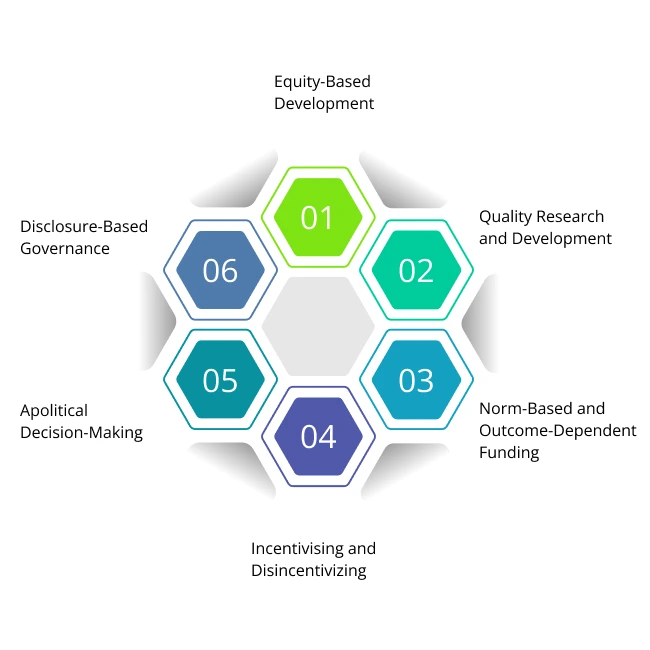
Principles of RUSA
Quality Research and Development
High-quality education is a central objective of the initiative, hence, it also includes establishing an atmosphere in institutes that promote quality research and development. It supports faculty development, training and fellowships to improve research capabilities.
Furthermore, RUSA promotes interdisciplinary research collaborations and the establishment of research centres to boost research activities.
Norm-Based and Outcome-Dependent Funding
The funding relies on the set norms and rules, and the educational institutes receive future grants based on the outcomes. Central funding is strategically distributed, with State Higher Education Plans (SHEPs) providing a framework to evaluate the progress of states and institutions and guide the allocation of resources.
Also, the prior accomplishments and reports of resource allocation and utilisation determine future financing.
Incentivising and Disincentivizing
Institutions that do not meet the prescribed standards and policies risk experiencing funding cuts. Such measures act as a strategy to empower institutes to make the necessary changes and make their programs viable.
Apolitical Decision-Making
RUSA emphasises objective decision-making grounded in SHEPs and performance metrics to ensure fairness and transparency. States must develop and implement governance improvements in an impartial, apolitical, and professional manner. To ensure the successful execution of these changes, the selection of public university leadership should be guided by the following criteria:
- Autonomy
- Revisiting the acts
- Streamlining the recruitment process
- Membership in governing bodies
- Institutional leadership
Disclosure-Based Governance
Educational institutes must prioritise implementing a disclosure-based administrative framework, ensuring transparency in their operations and outcomes. It promotes active stakeholder engagement and institutional accountability to students, parents, society, and regulatory bodies.
Equity-Based Development
Equity-based development projects should be an essential component of all growth strategies at both governmental and institutional levels. States and institutes must establish inclusive education, providing adequate opportunities to women, underprivileged groups, and those with disabilities.
Additionally, the redevelopment efforts should be targeted towards rural and tribal communities during the quota allocation and plan assessment.
What are the functions of RUSA?
- Track the allocation and utilization of funds and the sharing of relevant information.
- Appraise state higher education plans and collaborate with SHECs.
- Generate MIS reports.
- Provide all operational, technical, logistical, and managerial support to authoritative parties such as NMA, PAB, and the National Project Directorate.
- Appoint consultants for project monitoring, design, technical support, and other necessary services.
- Track the disbursement and expenditure of funds by states and measure their performance in achieving physical and financial milestones within a specific timeframe.
The fastest, easiest, and most reliable educational ERP system to meet the needs of your institution.
Connect with our experts for a gap analysis.
Mobile: 08448010216
Email:info@mastersofterp.com

